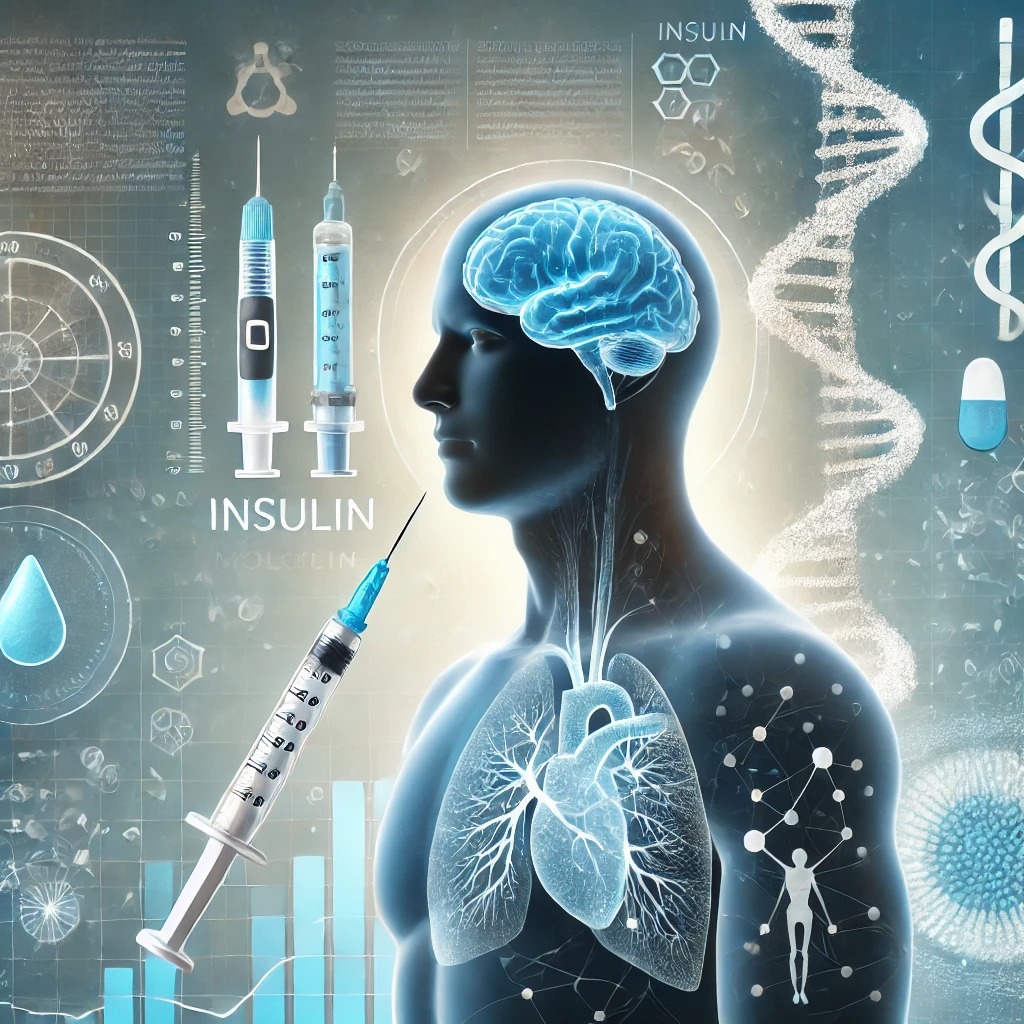Your cart is currently empty!
The Surprising Link Between Insulin and Tumor Growth – What You Need to Know
When it comes to managing diabetes, insulin therapy is a crucial tool. However, recent research has uncovered that while insulin is essential for blood sugar regulation, there is a surprising link between insulin and tumor growth. This can potentially promote cellular growth in ways that could lead to an increased risk of tumors. Here, we’ll explore the science behind insulin’s dual role and discuss why it’s essential for patients and healthcare providers to consider all aspects of long-term insulin use.
How Insulin Functions as a Growth Hormone
Insulin’s primary role is to regulate blood glucose levels, helping cells absorb sugar from the bloodstream. But insulin also has growth-promoting properties. It functions similarly to a growth hormone, binding to receptors on cells and stimulating cellular processes.
Scientific studies indicate that insulin can stimulate pathways involved in cell division and growth, specifically the insulin-like growth factor (IGF) pathway. This pathway plays a critical role in cell growth and differentiation, which is normally a healthy function. However, under certain conditions, this same pathway may contribute to tumor formation and growth.

What Does the Research Say?
Several scientific studies have drawn links between insulin and cancer risk, particularly in individuals who require high doses of insulin. Here are some of the key findings:
- Increased Cell Proliferation
Research published in the journal Diabetes Care suggests that insulin can activate cell signaling pathways that encourage cell proliferation. When cells grow and divide rapidly, the chances of genetic mutations increase, which could potentially lead to tumor formation over time. - Tumor Promotion in Certain Tissues
A study published in Cancer Epidemiology, Biomarkers & Prevention found that elevated insulin levels are associated with higher risks of certain cancers, such as breast, colorectal, and pancreatic cancers. This is because insulin, acting as a growth factor, may support the growth of existing precancerous cells in these tissues. - Long-Term Insulin Use and Cancer Risk
Another study from The Lancet Oncology indicated that long-term insulin therapy might be linked to an increased risk of cancer in individuals with type 2 diabetes. The study suggested that while insulin use is often necessary, monitoring dosage and exploring additional therapies might help mitigate associated risks.

Practical Steps for Diabetic Patients
- Minimize Insulin Resistance
A key factor in insulin management is reducing insulin resistance. Adopting a diet low in processed carbohydrates, combined with regular exercise, can help improve insulin sensitivity. This way, individuals may require lower doses of insulin. - Monitor Insulin Dosage Carefully
While insulin is necessary for managing blood glucose, it’s important for patients to work closely with their healthcare providers to use the minimum effective dose. Regular consultations ensure that insulin is managed effectively while considering overall health. - Consider Holistic Support
In addition to conventional treatments, integrating holistic practices can support insulin sensitivity naturally. In the Eclectic Healing Club, members can access holistic recipes and practices designed to enhance insulin effectiveness and potentially reduce the need for higher insulin doses.
Manage Type 2 Diabetes Without Insulin
Insulin therapy is essential for millions worldwide, but it’s vital to stay informed about the potential long-term impacts. By balancing insulin therapy with lifestyle modifications and holistic health practices, individuals can potentially reduce the need for high doses and support their overall health. The Eclectic Healing Club offers members a unique blend of science-backed guidance and natural remedies to help manage diabetes more holistically.
Staying informed is the first step to managing your health proactively—because knowing more allows you to make the best choices for your body. Get a FREE consultation and take action while you can. Ignoring your health can lead to things simply getting worse when they may not need to.


